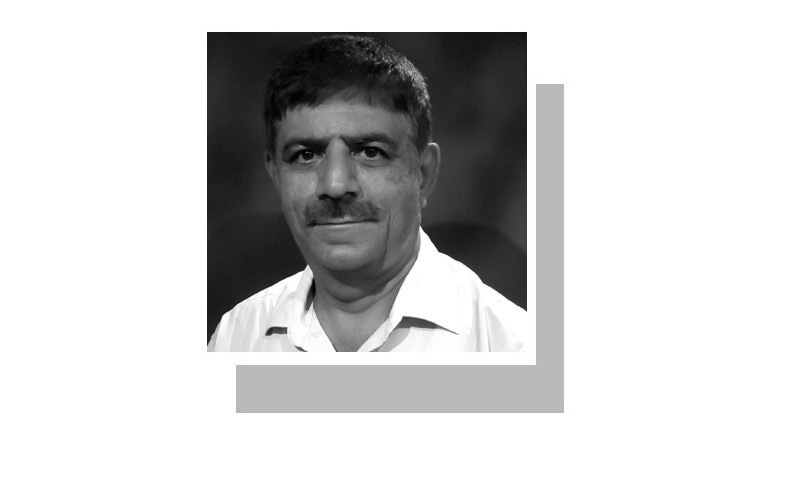IT so happened that the authorities at a certain jail thought it fit to invite a scholar so that prisoners doing time for various crimes could benefit from a talk on a topic concerning morals. All the prisoners assembled in a hall. But when the scholar entered, he was welcomed with fearsome, bloodshot eyes. He got so nervous that he fell down. The prisoners mocked him and broke into loud laughter. But the scholar immediately stood up and remarked that we are human beings, and most likely to fall down. It was not something odd, but it would be odd to fall down permanently and never try to stand up again.
In the Quran, Allah says that mankind has been created weak (4:28). This means that everyone of us is weak in many aspects — physically, emotionally and intellectually. Every one of us makes mistakes intentionally or unintentionally in our lives. Generally, mistakes are decisions or actions that are regretted afterwards. However, they are the best teachers. They carry inherent lessons to be learnt. They open the door of knowledge, enhance our intellectual capacity and lead us towards wisdom. Therefore, those who are sensible will realise and learn from their mistakes. Learning and saying sorry, as well as feeling sorry, are the best signs of maturity and greatness. Mistakes won’t make us small as no human being is infallible or perfect. Only Allah is perfect, therefore, humans can fall down and commit mistakes again and again. But they ought to learn from their mistakes.
Children need to be encouraged to accept their mistakes sincerely. They should not take recourse to erroneous pretexts as it will generate the habit of lying which is more damaging in life.
However, there are people in every society who are rigid and obstinate and do not accept their mistakes. They do not learn from their mistakes. In this way, they lose a learning opportunity and create difficulties for themselves and their loved ones. It is the display of their uncompromising attitude which makes them inflexible and thus unable to accept their own mistakes.
Some people are too rigid to accept their errors.
Mistakes mostly occur when one is careless, doing things in haste without proper knowledge and understanding. Similarly, emotionally charged or absent-minded people can also upset their lives as they make preventable mistakes.
Sometimes the impact of such mistakes is long-lasting, affecting many with its negative consequences. Therefore, the mistakes of those who are in leadership positions, heading their nation, organisation or family, are considered more serious and harmful and cannot be easily rectified. History records their mistakes for coming generations to learn from. Many nations, organisations and families break down due to the mistakes of their leaders. Many victories turn into defeats due to the mistakes of their commanders. Many doctors and lawyers fail in their professions due to their silly mistakes. Therefore, leaders should be more careful in their decision-making process, lest their mistakes ruin the lives of others.
In terms of religion, to err is human. It means that it is in the nature of human beings to commit mistakes. The very first human being and the first prophet Hazrat Adam committed a mistake in paradise, but he submissively repented and sought Allah’s mercy. His prayer shed a light on how we can seek forgiveness. He said: “O our Lord! we have wronged ourselves and if You do not forgive us and have mercy upon us, we will surely be among the losers” (7:23). Allah opened the doors of mercy and he was forgiven. His prayer provides us with the enlightenment that one should be humble, submissive and sad over our mistake before seeking forgiveness.
In many Quranic verses, believers are enjoined to seek forgiveness. Every Islamic prayer is particularly accompanied by a prayer of forgiveness. This is an essential prerequisite for getting Allah’s blessings. The Quranic notion of repentance is centred on the point that an individual should prepare the ground for repentance. This includes humble submission, admission and acceptance of one’s mistake with a promise to avoid a repetition of the same in the future. In case an individual has wronged others in some worldly matters there should be compensation. It is like cleansing a soul so that it moves upwards on the path of spirituality.
In order to avoid mistakes in decision-making or practical actions, one needs to evaluate various options before taking any final decision; one should think and pre-empt possible consequences, but what is more important is to seek guidance from Allah. Allah is the Guide in all matters provided one turns to Him for guidance. Allah says “Whosoever believes in Allah, He guides his heart. (64:11)
The writer is an educationist with an interest in religion.
Published in Dawn, November 12th, 2021













































